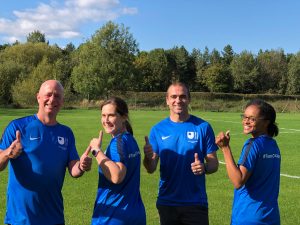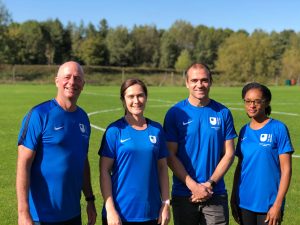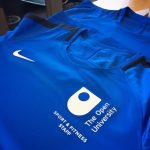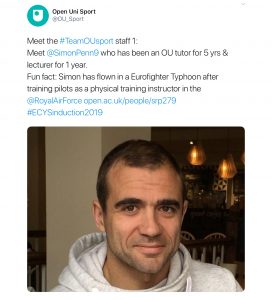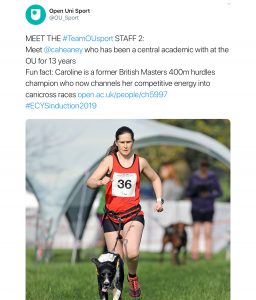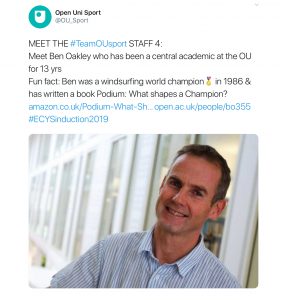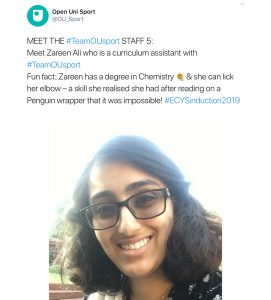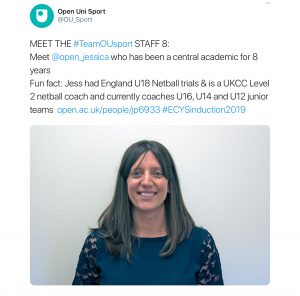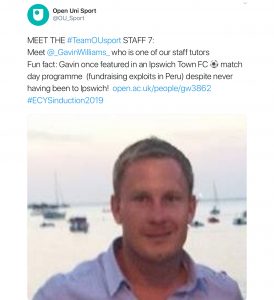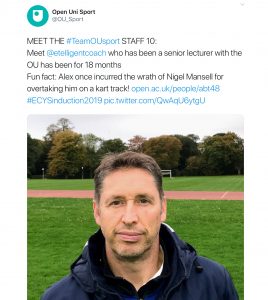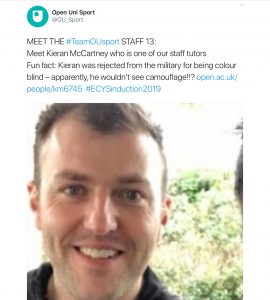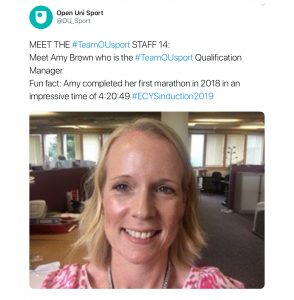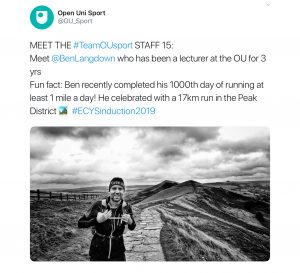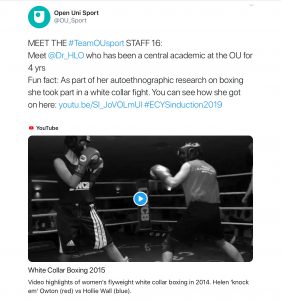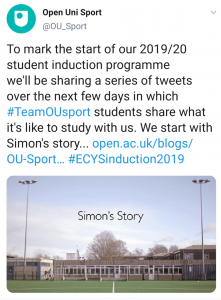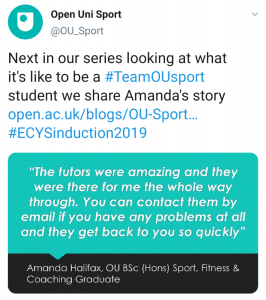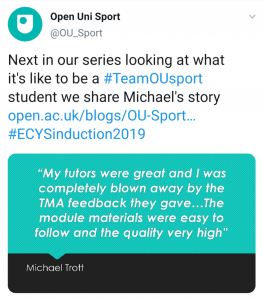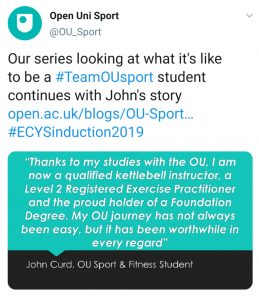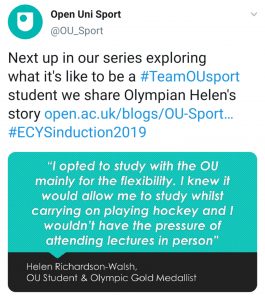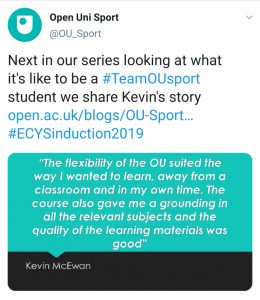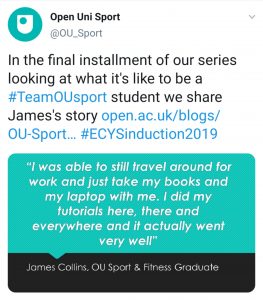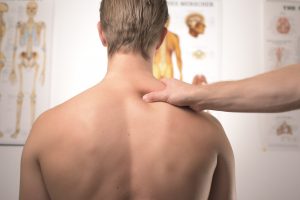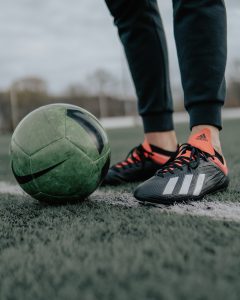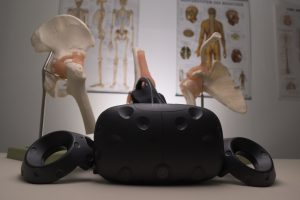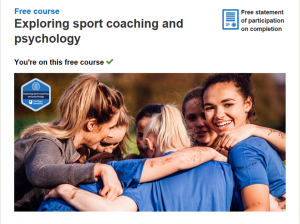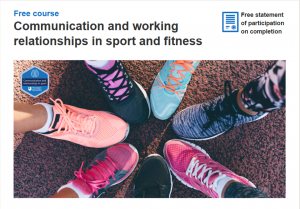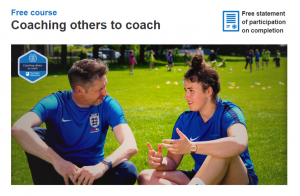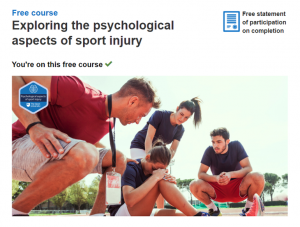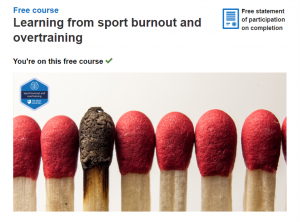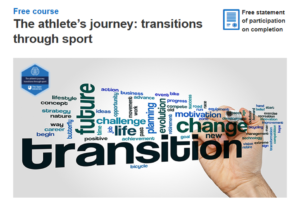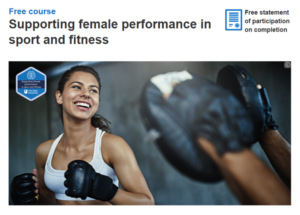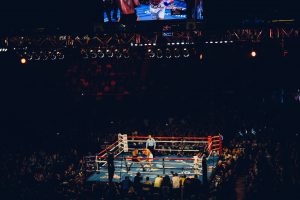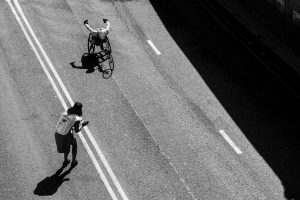By OUbloggers – Emmanouil Mandalakis, Selysia Lewis, Gabriele Leo and Sam Herd (E119 2018J Students)
This blog was written as part of a collaborative team work task by students studying E119. They had to select a topic and then decide on what roles each person would perform in the team, such as researcher, writer, editor and leader. This blog was chosen as one of the four best blogs from around 80 blogs that were produced.
 The development of new technology, such as the internet, in which everyone can upload their body transformation videos, can create feelings of admiration as well as a sense of jealousy. This is particularly common in young men who have a strong desire of building a big lean body like those shown on social media.
The development of new technology, such as the internet, in which everyone can upload their body transformation videos, can create feelings of admiration as well as a sense of jealousy. This is particularly common in young men who have a strong desire of building a big lean body like those shown on social media.
Often, the first question that comes to mind of young men on their smartphones is whether or not they can achieve a physique like someone’s on social media, and how quickly a body like this can be achieved.
Interestingly, it is becoming increasingly common when as health and fitness practitioners you must convince young trainees that an aesthetical physique requires patience and long-term consistency; building towards health and beauty should be a gradual process. Laidler (2017), an experienced personal trainer, comprehensively explains in The Telegraph newspaper that factors such as patience, commitment, a healthy diet and specific training programmes, as well as sufficient rest and sleep, will all contribute to the handsome body one desires.
However, in a world in which everything is being created at a rapid pace and everyone is rushing to exhibit their achievements, a quick body transformation is demanded to make one feel proficient and competent, as well as to show it off in their social environment! Someone who begins a hypertrophy programme to build the physique they dream of, or more specifically the ‘perfect’ body they have seen on social media, will soon find out the harsh reality; that is, the body does not change as rapidly as many people advertise. Besides, if it was so simple for us all to get big and lean, then there would be a significantly greater number of young men with the body they desire. On the contrary, if you take a walk around the majority of gyms, you will soon discover that a massive and ‘shredded’ body it is no easy feat. Most individuals cannot naturally reach extremely high muscle mass levels along with very low body fat, with the exception of some individuals who are favored by their genetics, and even this is only up to a certain threshold (Morgan, 2015).
Nevertheless, on the subject of improving self-image in gyms, the argument seems to almost always be the same: ‘how are those two guys in the gym I have been training bigger and leaner than the others? I want to be like them’. If you are constantly asking for an answer, another coach will appear from nowhere and offer you the opportunity to achieve the body you have dreamt of. They will claim they can transform you into a bigger and leaner version of yourself (Krahn, 2009).
With the hope for positive and immediate results but a false sense of body image (Jones, 2016), you suddenly find yourself becoming victim to the IPEDs (Image and Performance Enhancing Drugs) world. (Mandalakis, 2019)
‘Up to a million Britons use steroids for looks not sport’ (The Guardian, 2018). Public health experts have stated that in order to change the way they look, up to 1 million people in the UK are taking anabolic steroids and other IPEDs. Ranging from teenagers seeking the perfect physic and elderly men hoping to hold onto their youthfulness. Anabolic steroids are the biggest group of IPEDs. They are a group of hormones which occur naturally in the body and are responsible for growth, physical development and functioning of reproductive organs. Some athletes abuse anabolic steroids to help them perform better as steroids build muscle and improve athletic performance.
In a Public Health Institute study, more than half of the respondents said that the development of body image was their motivation for using IPEDs. Those who took part ranged from 17-74 years of age, resulting in the average person likely to take IPEDs to be a white male in their 30s (The Guardian, 2018).
Image and performance enhancing drugs can cause numerous health issues; including both physical and mental side effects. For example, IPEDs can cause cardiovascular diseases and permanent disruption of normal sexual function as a result of long-term use (Pope et al., 2014). Some IPEDs are taken by injecting which can cause soft tissue injury and localised infections. Furthermore, sharing injecting equipment can spread HIV, hepatitis C and other infections. In a 2013 study, 8.9% of IPED users stated that they had shared injecting equipment. As a result, it was discovered that 1.5% of IPED injectors across England and Wales were HIV positive, and a further 8% infected by hepatitis B and 5% by hepatitis C (Hope et al., 2013).
Additionally, the main risks of steroids include stunted growth in young people and hypertension; steroids encourage the retention of water in the body and thus raise blood pressure. DrugWise (2017) also states that steroids can cause irreversible changes in the female body including the risk of developing ‘male’ features such as decreased breast size, facial and body hair, and deepening of the voice.
The IPEDs world is a dangerous one… Your health should always come first.
References:
BBC (2017) Main Motivation for Steroid Use ‘to enhance image’ [Online\. Available at https://www.bbc.co.uk/news/uk-wales-41984527 (Accessed 22 January 2019).
DrugWise (2017) Performance and Image Enhancing Drugs (PIEDs) [Online]. Available at https://www.drugwise.org.uk/performance-and-image-enhancing-drugs-pieds/ (Accessed 22 January 2019).
The Guardian (2018) Up to a Million Britons Use Steroids For Looks Not Sport [Online]. Available at https://www.theguardian.com/society/2018/jan/21/up-to-a-million-britons-use-steroids-for-looks-not-sport (Accessed 22 January 2019).
Hope, V. D., McVeigh, J., Marongiu, A., Evans-Brown, M., Smith, J., Kimergård, A., Croxford, S., Beynon, C. M., Parry, J. V., Bellis, M. A. and Ncube, F. (2013) ‘Prevalence of, and risk factors for, HIV, hepatitis B and C infections among men who inject image and performance enhancing drugs: a cross-sectional study’, BMJ Open, vol. 3, no. 9 [Online]. Available at https://www.ncbi.nlm.nih.gov/pmc/articles/PMC3773656/ (Accessed 22 January 2019).
Jones, H. (2016) Steroid Use in the UK: What You Need to Know, ITV [Online]. Available at https://www.itv.com/goodmorningbritain/news/spencer-matthews-investigates-britains-steroid-epidemic-for-gmb (Accessed 16 January 2019).
Krahn, B. (2009) The Drug Coach [Online]. Available at https://www.t-nation.com/pharma/drug-coach (Accessed 23 January 2019).
Laidler, S. (2017) How to Build Muscle: A Complete Guide to Making a Bigger, Stronger You [Online]. Available at https://www.telegraph.co.uk/health-fitness/body/build-muscle-complete-guide-making-bigger-stronger/ (Accessed 16 January 2019).
Morgan, A. (2015) Maximum Genetic Muscular Potential – The Models and their Limitations [Online]. Available at https://rippedbody.com/maximum-muscular-potential/ (Accessed 16 January 2019).
Pope, H.G. Jr., Wood R.I., Rogol, A., Nyberg, F., Bowers, L. and Bhasin, S. (2014) ‘Adverse health consequences of performance enhancing drugs: An Endocrine Society Scientific statement’, Endocrine Reviews, vol. 35, no. 3, pp. 341-375 [Online]. Available at https://www.ncbi.nlm.nih.gov/pubmed/24423981 (Accessed 22 January 2019).
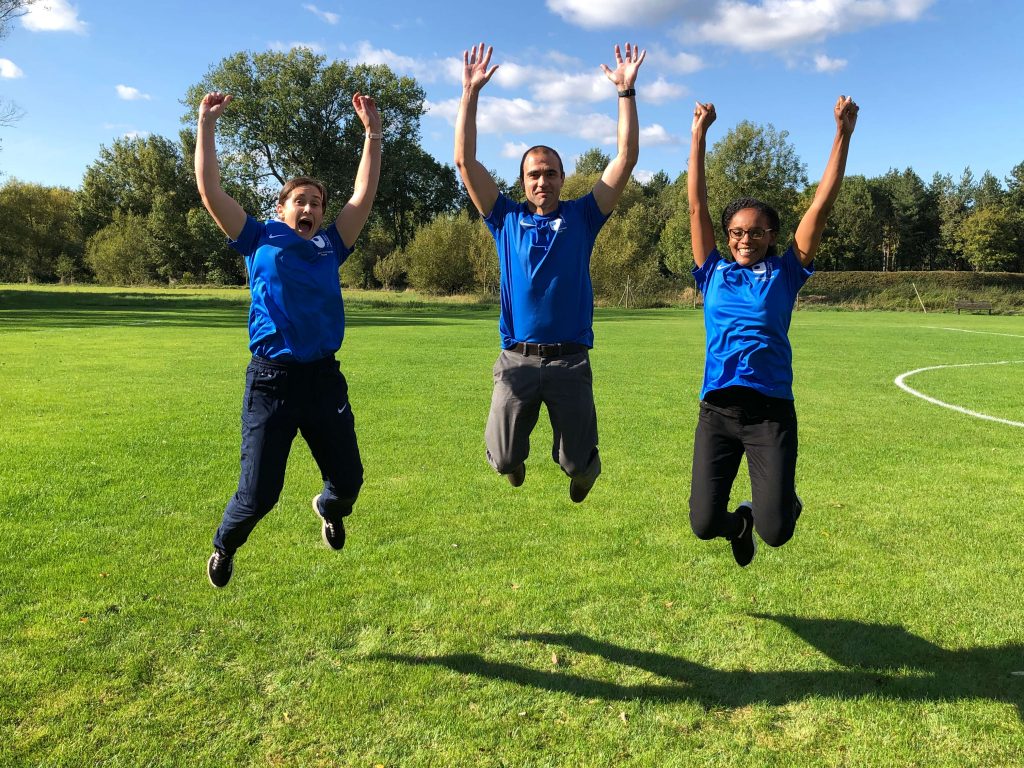 We are delighted to announce that in association with Kitlocker we now have a range of Open University Sport and Fitness branded Nike kit and accessories available for staff and students. This can be purchased through the website below.
We are delighted to announce that in association with Kitlocker we now have a range of Open University Sport and Fitness branded Nike kit and accessories available for staff and students. This can be purchased through the website below.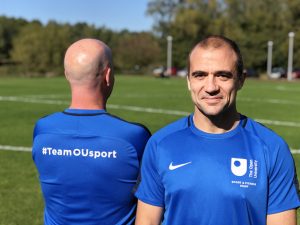 OU Sport and Fitness team. I can’t wait to see students sharing pictures of themselves working, training, studying and competing in their kit!”
OU Sport and Fitness team. I can’t wait to see students sharing pictures of themselves working, training, studying and competing in their kit!”
